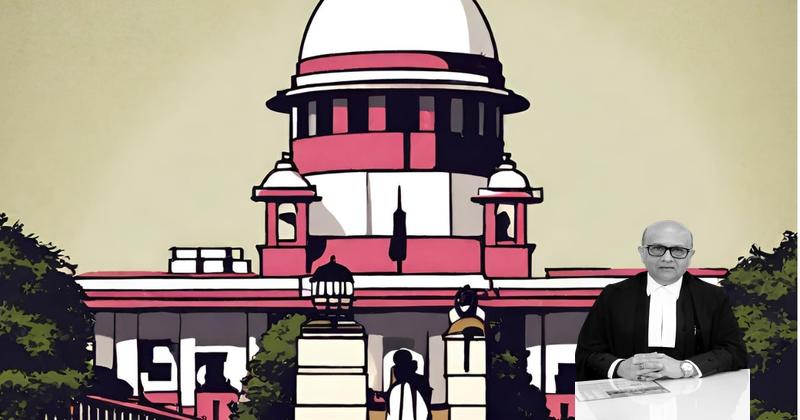In a significant legal development, the Supreme Court of India has delivered a crucial verdict on the regulation of Oxytocin manufacturing. This ruling is set to have far-reaching impacts on the pharmaceutical industry and public health policies. Stay informed as we delve deeper into the details and repercussions of this momentous decision.
Facts
- The Drug Consultative Committee (DCC) and Drugs Technical Advisory Board (DTAB) have recognized the definite role of Oxytocin in the medical field for both humans and animals.
- Domestic manufacturers being prohibited from manufacturing Oxytocin may lead to smuggling from neighboring countries for illegal use.
- Enhanced surveillance by regulatory authorities is essential to contain misuse, followed by strict actions against violators.
- Schedule H1 prescription drugs have stricter control measures compared to Schedule H drugs.
- The sale of Oxytocin has been regulated by amending package size to single blister packs.
- Oxytocin is considered an essential life-saving drug and listed in the National List of Essential Medicines (NLEM).
- The misuse of Oxytocin, especially in milch animals, has been a subject of discussion by statutory bodies like DTAB and DCC.
- The manufacturing and sale of Oxytocin have faced challenges due to rampant misuse.
- Various notifications and recommendations have been issued to regulate the production and distribution of Oxytocin.
- The Ministry of Health and Family Welfare has issued notifications to restrict and control the manufacture and sale of Oxytocin formulations.
- The DTAB and DCC have recommended measures like surveillance, monitoring, and strict regulations to curb misuse of Oxytocin.
- The High Court upheld the validity of the Notification to prevent misuse of Oxytocin.
- The Delhi High Court later quashed the impugned notification, citing lack of legal authorization for creating a state monopoly.
- The impugned notification was deemed arbitrary and unreasonable.
- Insufficient scientific data and rationale were cited for the decision to restrict Oxytocin production to one licensee, KAPL.
- The decision was influenced by a previous Himachal Pradesh High Court ruling.
- Concerns were raised about potential maternal fatalities due to restricted availability of Oxytocin.
- The stay on the impugned notification was extended multiple times.
- A previous notification from 2014 restricting Oxytocin manufacture and sale was also challenged in court.
Issue
- Whether a drug included in the National List of Essential Medicines published under Schedule 1 of the Drugs (Prices Control) Order, 2013 notified under Section 3 of the Essential Commodities Act, 1955 would be subject to the provisions of Section 26A of the Drugs and Cosmetics Act, 1940.
- The interpretation and application of Section 26A in relation to essential medicines.
- Analysis of the legal implications of including a drug in the National List of Essential Medicines under the Drugs (Prices Control) Order.
Arguments
- The DTAB meeting did not recommend restricting Oxytocin manufacture to public sector only
- Impugned Notification does not create a state monopoly in favor of KAPL, allows export and overseas sales
- Impugned Notification restricts but does not completely prohibit Oxytocin manufacture
- High Court ruling allows partial ban on drug manufacturing by private entities in public interest
- Impugned Notification protected under Article 19(6) of the Indian Constitution
- Presumption of constitutionality for subordinate legislation, burden of proof on respondents
- Licensed manufacturers responsible for leakage leading to spurious Oxytocin production
- Central Government’s decision based on High Court ruling and data on overproduction and leakage
- Impugned Notification affects private sector licensees, stands cancelled practically
- Constitutional challenge on grounds of being arbitrary, discriminatory, and disproportionate
- Impugned Notification impact on Article 19(1)(g) as it prohibits manufacturing without export license
- Restrictions on trade can be created via notification
- Original basis of notification questioned as irrelevant, sudden change in approach highlighted
- Central Government decision balances animal and human health, public interest noted
- Judicial review limitations on legislative act, discretion on public health matters
- Impugned notification discriminated against private sector licensees favoring public sector monopoly
- Statutory bodies did not recommend complete prohibition for private licensees
- Impugned notification aimed at public interest for bovine health and environmental protection
- Critique on High Court exceeding jurisdiction, policy decision review cautioned
- No prosecution or notice issued for misuse by Respondent-Manufacturers, notification deemed arbitrary
- Misuse not covered under Section 26A for regulating licensed drugs
- Power of Section 26A should not be used to restrict essential drug misuse
- Act provides level playing field for drug manufacturing, distribution, and sales
- KAPL obtained a license to manufacture the drug in April 2018, just before the impugned notification was passed.
- Oxytocin is considered an essential drug listed under the NLEM, and the Central Government’s use of Section 26A of the Act was challenged.
- The creation of a monopoly in favor of a public sector corporation, KAPL, was highlighted as a concern for the drug’s supply and availability in hospitals and for patients.
- Manufacturing of the drug by KAPL began after the passing of the impugned notification in May 2018.
- Under the Impugned Notification, only KAPL would be allowed to manufacture Oxytocin for domestic purposes, potentially impacting the market significantly.
Analysis
- Section 26-A of the Act confers wide powers on the Central Government to regulate, restrict, or prohibit the manufacture, sale, or distribution of a drug if certain conditions are satisfied.
- The Central Government is not bound by the recommendations of the Drug Technical Advisory Board (DTAB) or the Drug Consultative Committee (DCC).
- Several case laws were cited to support the argument, including Akadasi Pradhan vs State of Orissa, Khoday Distilleries Ltd. v State of Karnataka, Daruka & Co v Union of India & Others, Indian Drugs & Pharmaceuticals Ltd. v. Punjab Drugs Manufacturers Association, and Municipal Committee, Amritsar v State of Punjab.
- The Central Government can independently determine the misuse of a drug, such as Oxytocin, and its harmful effects on animals and humans.
- The exercise of power under Section 26A is not legislative in nature, as it is based on the ‘satisfaction’ of the Central Government alone.
- The Central Government cannot create a state monopoly in the manufacturing of a drug for domestic sale under Section 26A and claim protection under Article 19(6) of the Constitution.
- The ‘satisfaction’ of the Central Government was based on the factum of misuse deliberated by the DTAB and DCC.
- The misuse of Oxytocin has been deliberated by the DCC and DTAB for the past 21 years, forming the basis of the impugned Notification.
- The impugned Notification is not a form of delegated legislation according to the introduction of Section 26A in the Act.
- The Drug Control Department found that several drugs manufactured by KAPL were of Non-Standard Quality as recently as October 2018.
- The Act and accompanying Rules have mechanisms in place to counter contraventions by licensed manufacturers.
- The exercise of power under Section 26A is a serious issue with far-reaching implications.
- The NLEM is listed in the Schedule to the DPCO notified by the Central Government, and power under Section 26A cannot be exercised in respect of NLEM drugs.
- The impugned notification under Section 26A is ultra vires as it runs counter to the DPCO and Section 6 of the Essential Commodities Act, 1955.
- The twin issues are the unregulated manufacture of Oxytocin and its misuse in milch animals, and the continued supply of this essential life-saving drug for post-partum haemorrhage.
- The impugned notification does not violate the right to carry on trade or business of the private sector companies under Article 19(1)(g)
- The impugned notification restricts the manufacture, sale, or distribution of a drug that is already prohibited under Section 18 of the Act
- Question of whether the notification creates a monopoly in favor of public sector companies to the exclusion of private sector companies
- Examining if the classification between public and private sector companies in the manufacture of the drug Oxytocin for domestic use is justifiable
- Considering if restricting the manufacture of a life-saving drug to a single public sector undertaking is in public interest, especially given high maternal mortality rates
- Assessing if there was relevant and objective material before the Central Government to prohibit private sector companies from manufacturing the drug for domestic use
- Exploring if the objective of curbing clandestine manufacture and unregulated use of Oxytocin can be achieved by banning the manufacture of licensed drugs by private sector companies
- The court has identified important questions of law that require a definitive decision.
- It is deemed suitable to refer the matter to a larger Bench of three Judges for consideration.
- The larger Bench will provide an authoritative ruling on the identified questions of law.
Decision
- The present group of appeals will be placed before the Hon’ble Chief Justice of India for necessary directions.
Case Title: UNION OF INDIA Vs. BGP PRODUCTS OPERATIONS GMBH AND HAGENE IMMERMATT WEG
Case Number: C.A. No.-006588-006591 / 2019



